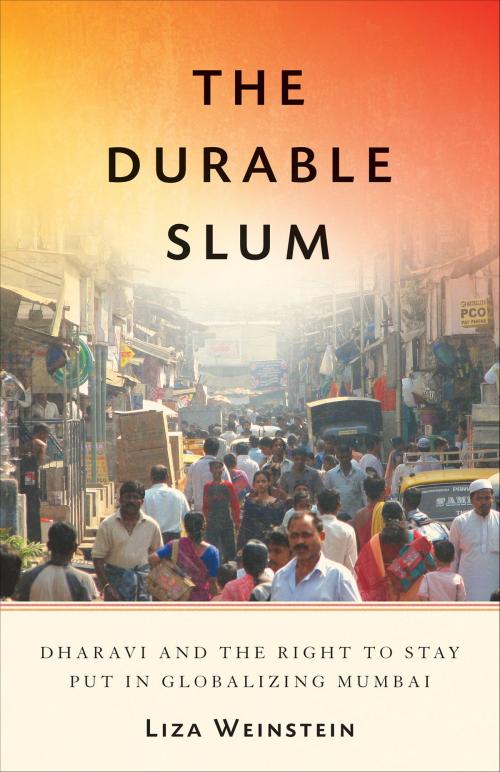The Durable Slum
Dharavi and the Right to Stay Put in Globalizing Mumbai
Nonfiction, History, Asian, India, Social & Cultural Studies, Social Science, Sociology, Urban, Anthropology| Author: | Liza Weinstein | ISBN: | 9781452941127 |
| Publisher: | University of Minnesota Press | Publication: | April 1, 2014 |
| Imprint: | Univ Of Minnesota Press | Language: | English |
| Author: | Liza Weinstein |
| ISBN: | 9781452941127 |
| Publisher: | University of Minnesota Press |
| Publication: | April 1, 2014 |
| Imprint: | Univ Of Minnesota Press |
| Language: | English |
In the center of Mumbai, next to the city’s newest and most expensive commercial developments, lies one of Asia’s largest slums, where as many as one million squatters live in makeshift housing on one square mile of government land. This is the notorious Dharavi district, best known from the movie Slumdog Millionaire. In recent years, cities from Delhi to Rio de Janeiro have demolished similar slums, at times violently evicting their residents, to make way for development. But Dharavi and its residents have endured for a century, holding on to what is now some of Mumbai’s most valuable land.
In The Durable Slum, Liza Weinstein draws on a decade of work, including more than a year of firsthand research in Dharavi, to explain how, despite innumerable threats, the slum has persisted for so long, achieving a precarious stability. She describes how economic globalization and rapid urban development are pressuring Indian authorities to eradicate and redevelop Dharavi—and how political conflict, bureaucratic fragmentation, and community resistance have kept the bulldozers at bay. Today the latest ambitious plan for Dharavi’s transformation has been stalled, yet the threat of eviction remains, and most residents and observers are simply waiting for the project to be revived or replaced by an even grander scheme.
Dharavi’s remarkable story presents important lessons for a world in which most population growth happens in urban slums even as brutal removals increase. From Nairobi’s Kibera to Manila’s Tondo, megaslums may be more durable than they appear, their residents retaining a fragile but hard-won right to stay put.
In the center of Mumbai, next to the city’s newest and most expensive commercial developments, lies one of Asia’s largest slums, where as many as one million squatters live in makeshift housing on one square mile of government land. This is the notorious Dharavi district, best known from the movie Slumdog Millionaire. In recent years, cities from Delhi to Rio de Janeiro have demolished similar slums, at times violently evicting their residents, to make way for development. But Dharavi and its residents have endured for a century, holding on to what is now some of Mumbai’s most valuable land.
In The Durable Slum, Liza Weinstein draws on a decade of work, including more than a year of firsthand research in Dharavi, to explain how, despite innumerable threats, the slum has persisted for so long, achieving a precarious stability. She describes how economic globalization and rapid urban development are pressuring Indian authorities to eradicate and redevelop Dharavi—and how political conflict, bureaucratic fragmentation, and community resistance have kept the bulldozers at bay. Today the latest ambitious plan for Dharavi’s transformation has been stalled, yet the threat of eviction remains, and most residents and observers are simply waiting for the project to be revived or replaced by an even grander scheme.
Dharavi’s remarkable story presents important lessons for a world in which most population growth happens in urban slums even as brutal removals increase. From Nairobi’s Kibera to Manila’s Tondo, megaslums may be more durable than they appear, their residents retaining a fragile but hard-won right to stay put.















